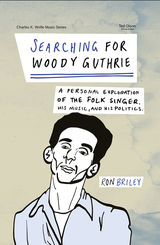3 books about His Music

Charlie Parker
His Music and Life
Carl Woideck
University of Michigan Press, 2020
Saxophonist Charlie Parker (1920-1955) was one of the most innovative and influential jazz musicians of any era. As one of the architects of modern jazz (often called "bebop"), Charlie Parker has had a profound effect on American music. His music reached such a high level of melodic, rhythmic, and harmonic sophistication that saxophonists and other instrumentalists continue to study it as both a technical challenge and an aesthetic inspiration. This revised edition of Charlie Parker: His Music and Life has been revised throughout to account for new Charlie Parker scholarship and previously unknown Parker recordings that have emerged since the book’s initial publication. The volume opens by considering current research on Parker’s biography, laying out some of the contradictory accounts of his life, and setting the chronology straight where possible. It then focuses on Parker’s music, tracing his artistic evolution and major achievements as a jazz improviser. The musical discussions and transcribed musical examples include timecodes for easy location in recordings—a unique feature to this book.
[more]

Charlie Parker
His Music and Life
Carl Woideck
University of Michigan Press, 1998
"Whatever background you bring to it, the book willl likely enrich your understanding of Parker's music. . . ." --Cadence
As one of the architects of modern jazz (often called "bebop"), Charlie Parker (1920-55) had a profound effect on American music that continues to this day.
This book opens with a chapter of biography and then progresses to four chapters focusing on Charlie Parker's music by tracing his artistic evolution and major achievements as a jazz improviser. Much like a guided tour through an artist's retrospective, the book introduces readers to a sampling of Charlie Parker's most illustrative works. The musical discussions and transcribed musical examples are keyed to compact disc timings for easy location--a feature unique to this book.
"The musical analysis is brilliant, particularly the pre-1945 fragments." --DownBeat
". . . debunks the stereotype that jazz musicians are unschooled and unsophisticated when it comes to music as art rather than entertainment. . . . [An] insightful and informative addition to the literature of jazz." --Calvin Wilson, Kansas City Star
Carl Woideck is Instructor of Jazz History, University of Oregon.
[more]

Searching for Woody Guthrie
A Personal Exploration of the Folk Singer, His Music, and His Politics
Ron Briley
University of Tennessee Press, 2019
Born in the summer of 1912, Woody Guthrie remains one of the most significant figures in American folk music to this day. While most Americans know his iconic anthem “This Land Is Your Land,” surprisingly few understand Guthrie’s place in the greater context of American radicalism and protest in the 1930s and beyond.
In Searching for Woody Guthrie, Ron Briley embarks on a chronological exploration of Guthrie’s music in the vein of American radicalism and civil rights. Briley begins this journey with an overview of five key periods in Guthrie’s life and, in the chapters that follow, analyzes his political ideas through primary and secondary source materials.
While numerous biographies on Woody Guthrie exist—including Guthrie’s own 1943 autobiography—this book takes a different approach. Less biographical and more thematic in nature, Searching for Woody Guthrie centers around Guthrie’s faith in the common working people of America, bringing together People’s Daily World “Woody Sez” newspaper columns, Guthrie centennial secondary source texts, research in the Woody Guthrie Archives, and Briley’s own personal reflections to present a narrative that is at once personal to the author and relatable to America’s rural working class.
Interlacing Guthrie’s music with his own geographic and economic background, Briley presents an original and eloquent chronology of Guthrie’s life and work in what amounts to a compelling new case for why that work, more than fifty years after Guthrie’s death, continues to leave its mark.
In Searching for Woody Guthrie, Ron Briley embarks on a chronological exploration of Guthrie’s music in the vein of American radicalism and civil rights. Briley begins this journey with an overview of five key periods in Guthrie’s life and, in the chapters that follow, analyzes his political ideas through primary and secondary source materials.
While numerous biographies on Woody Guthrie exist—including Guthrie’s own 1943 autobiography—this book takes a different approach. Less biographical and more thematic in nature, Searching for Woody Guthrie centers around Guthrie’s faith in the common working people of America, bringing together People’s Daily World “Woody Sez” newspaper columns, Guthrie centennial secondary source texts, research in the Woody Guthrie Archives, and Briley’s own personal reflections to present a narrative that is at once personal to the author and relatable to America’s rural working class.
Interlacing Guthrie’s music with his own geographic and economic background, Briley presents an original and eloquent chronology of Guthrie’s life and work in what amounts to a compelling new case for why that work, more than fifty years after Guthrie’s death, continues to leave its mark.
[more]
READERS
Browse our collection.
PUBLISHERS
See BiblioVault's publisher services.
STUDENT SERVICES
Files for college accessibility offices.
UChicago Accessibility Resources
home | accessibility | search | about | contact us
BiblioVault ® 2001 - 2024
The University of Chicago Press









